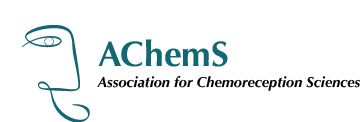- Home
- Symposia
2021 Symposia
Keynote Lecture

Nadine Gogolla, PhD
Max Plank Institute of Neurobiology
Mouse facial expressions reflect emotions and reveal subjective value
Chemosensory Dysfunction in COVID-19: Behavioral and Neurobiological Factors
- Chairs: Shima Moein - Institute for Research in Fundamental Sciences & Richard Doty - University of Pennsylvania
Jonathan Overdevest- Columbia University Medical
Center
Molecular and Microscopic Evaluation of
Olfactory Epithelium From COVID-19 Patients
Valentina Parma - Temple University
A Worldwide Approach to Study
Chemosensory Loss During COVID-19
Pandemic
Carol Yan - University of California San Diego Health
COVID-19 Patients with Smell Loss in the
Otorhinolaryngology Clinic: Approach,
Management and Prognosis
Richard Doty - University of
Pennsylvania
Machine Learning: A Path Toward Optimized
Smell Tests for Screening COVID-19
Cell Types in Taste Buds and Tentacles
- Chairs: Thomas Finger - University of Colorado Medical School & Sue Kinnamon -University of Colorado Medical School
Courtney Wilson - University of Colorado Medical School
Canonical Cell Types in Mouse Taste Buds
Akiyuki Taruno- Kyoto Prefectural University of Medicine
Salt-responsive Cells - A Unique Cell Type?
Kathryn Medler - University at Buffalo
Non-canonical cell types in Taste buds
Lena Van Giesen - Haarvard
Taste Cells in Octopus Suckers
Development of chemosensation and perception
- Chair: Arianna Maffei - Stony Brook University Medical School
Claudia Lodovichi - Neuroscience Institute,
Cl homeostasis and neurogenesis in the
olfactory system
Hillary Schiff - Stony Brook University
A Critical Period for Taste
Bianca Marlin - Columbia University Zuckerman Institute
Joost Maier - Wake Forest School of Medicine
Early postnatal development of information
processing in bulbo-cortical circuits
Satiety-based modulation of chemosensory processing across organisms
- Chairs: Thorsten Kahnt - Northwestern University & Laura Shanahan - Northwestern University
Dennis Mathew - University of Nevada
Starvation-dependent modulation of olfactory
sensitivity and its impact on animal physiology
Matthew Gardner - NIH/NIDA
Adjusting decisions due to satiety-induced
changes in food preferences
Maia Pujara- Sarah Lawrence College
Choice behavior following selective satiety and
conditioned taste preference in nonhuman
primates
Laura Shanahan - Northwestern University
How satiety modulates perceptual decisionmaking in olfactory circuits
The cure for olfactory loss
- Chair: Thomas Hummel - University of Dresden Medical School
Katie Whitcroft - University College London
The use of steroids in patients with olfactory dysfunction
Vijay Ramakrishnan - University of Colorado
The nasal microbiome and the sense of smell
Andrew Lane - Johns Hopkins University School of Medicine
Inflammation and olfactory function
Moustafa Bensafi - French National Centre for Scientific Research
Olfactory implants
On-Demand: Max Mozell - The Work Lives On
- Chair: Theresa White - Le Moyne College and SUNY Upstate Medical University
Noam Sobel- The Weizman Institute of Science
The Sniffing Brain: From a Unit of Olfaction to a Unit of Cognition
Ann-Sophie Barwich- Indiana University
Mozell's chromatographic theory: A molecular basis of cognitive behavior?
David Coppola- Randolph-Macon
College
Lord Adrian's and Max Mozell's Analogy: Olfaction as a Spatial Sense.
Bradley Goldstein - Duke University
Addressing smell loss: from a Clinical Olfactory Research Center to ongoing translational research efforts
On-Demand: non-WEIRD human chemosensory science
- Chairs: Maria Veldhuizen - Mersin University & Valentina Parma - Temple Universiry
Kara Hoover - University of Alaska Fairbanks
Sensory Inequities: The local and global
consequences of the Anthropocene on the
human sensorium
Patrick Balungwe -Catholic University of Bukavu
Olfactory testing in a non-WEIRD population in Africa requires new norms, culturally
appropriate odors and consideration of endemic pathologies
Duika Burges-Watson- Newcastle University
Moving from researcher-centric methodologies to patient-inclusive chemosensory research
Agnieszka Sorokowska- University of Wroclaw
Global commonalities in social odor awareness from a large-scale data study across 44 countries


